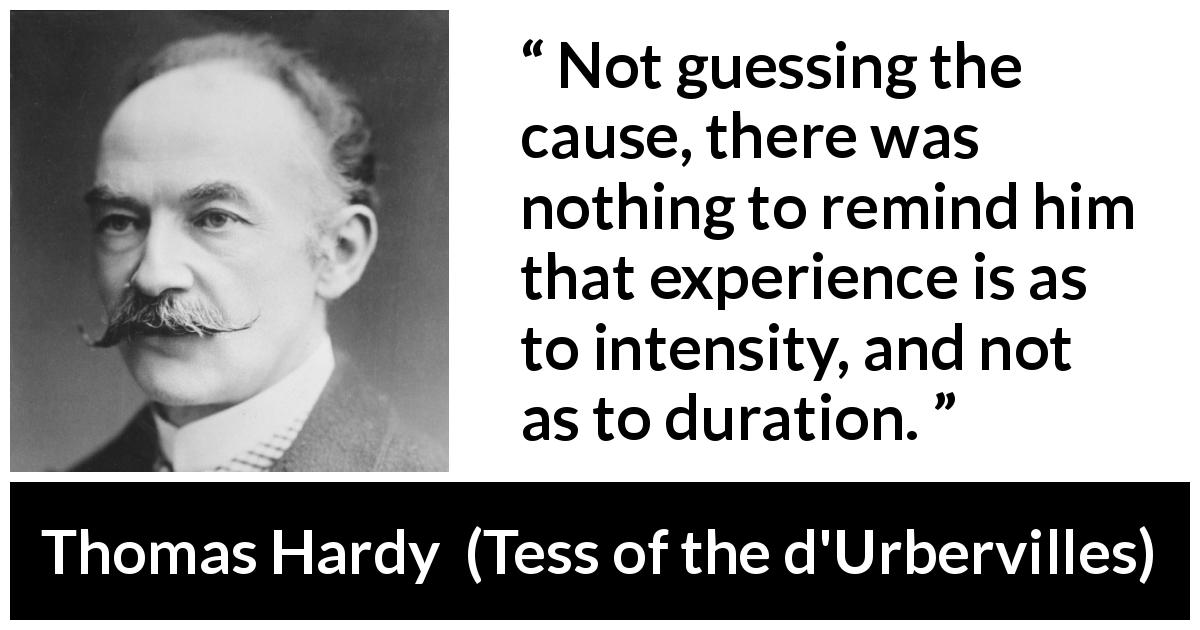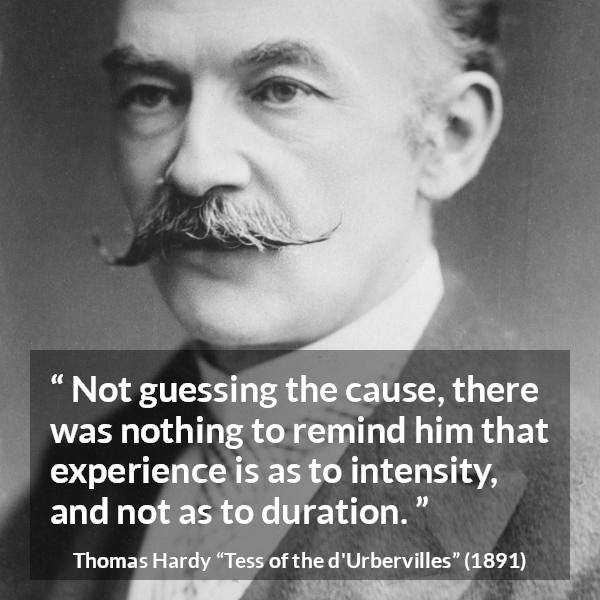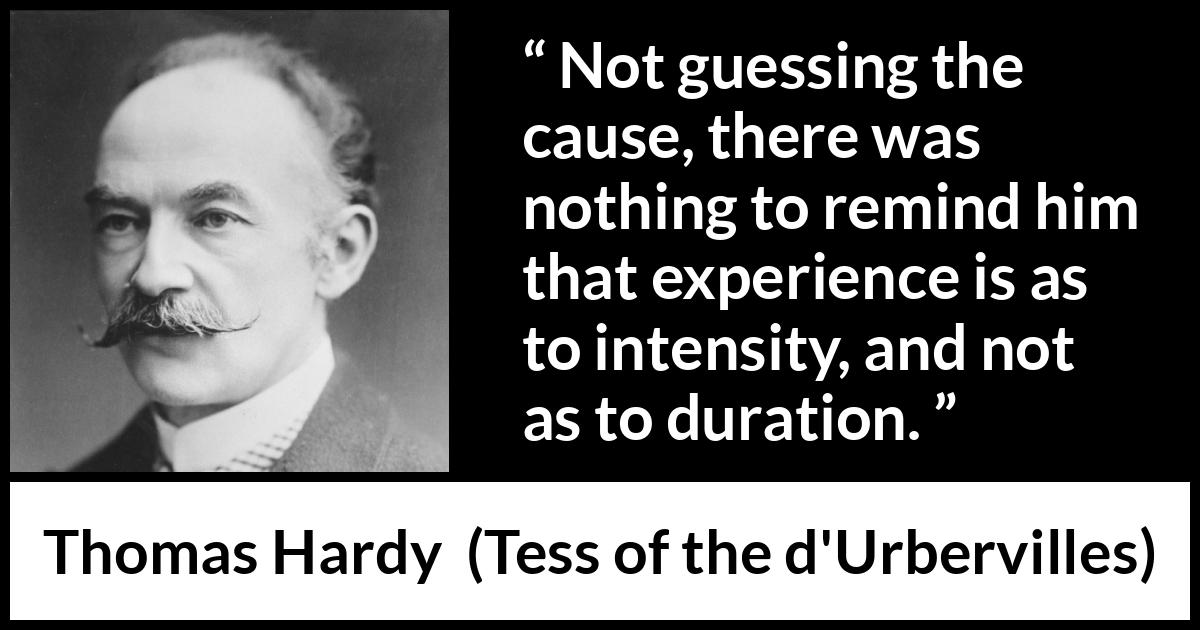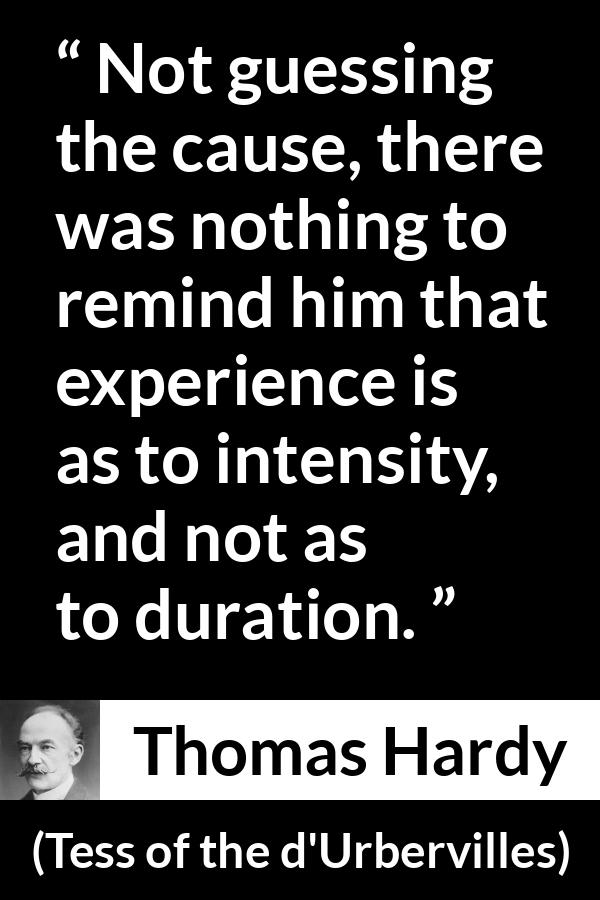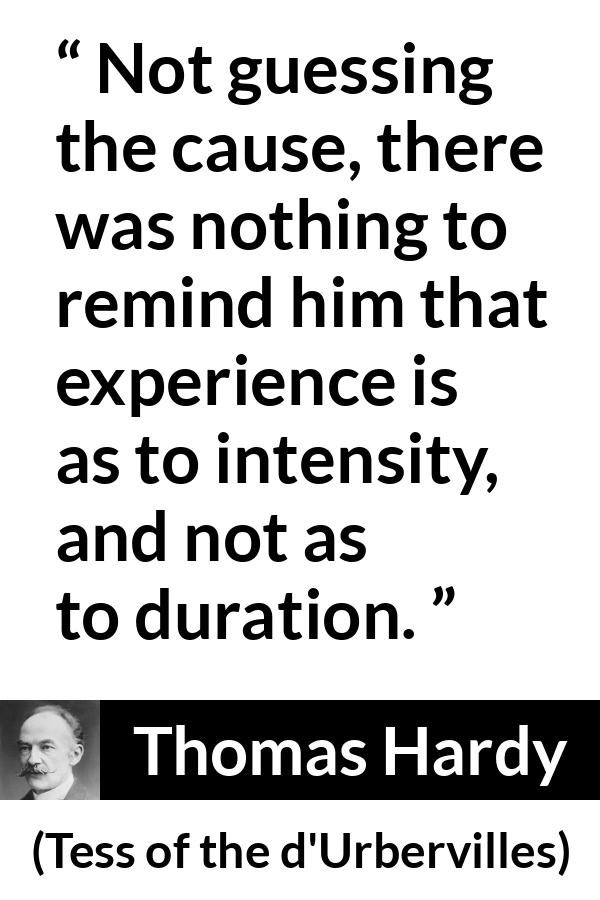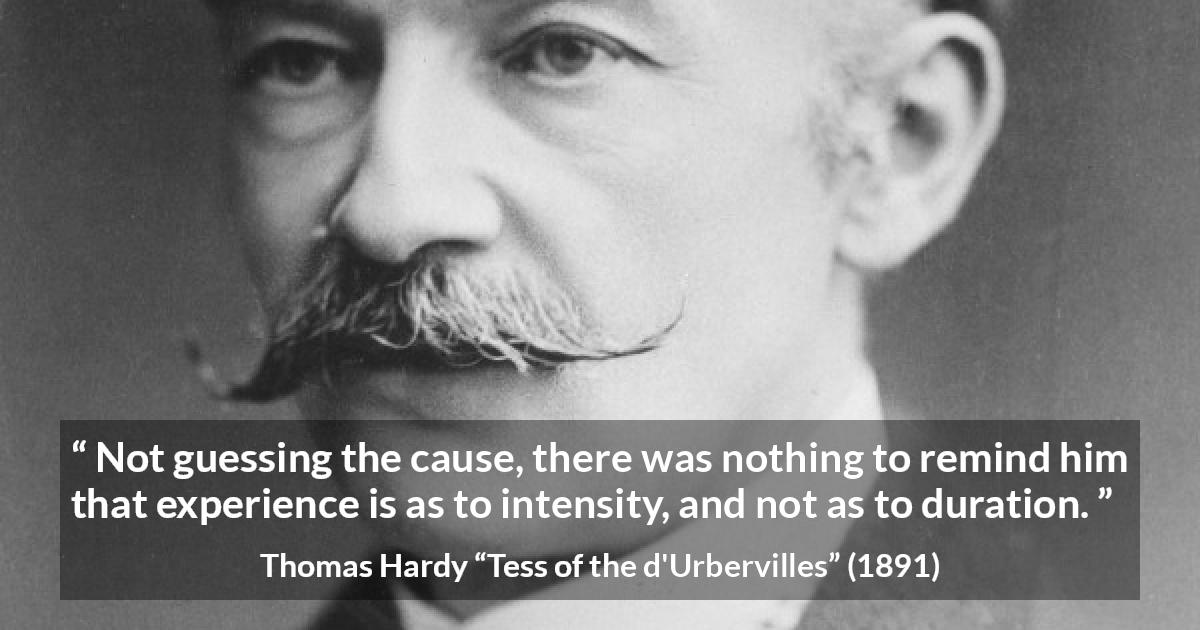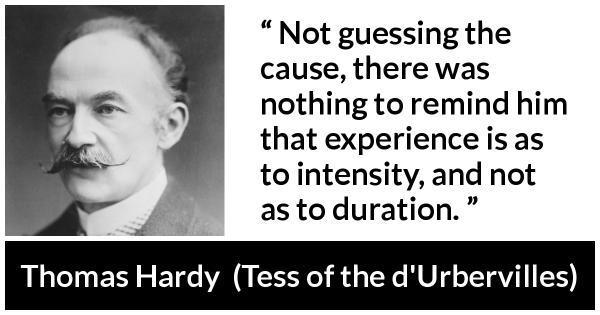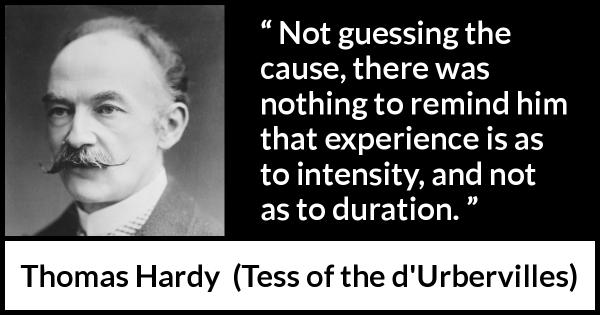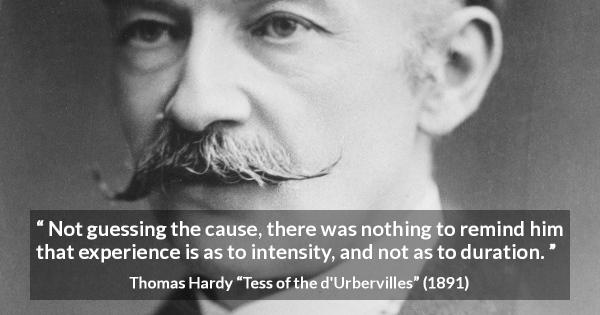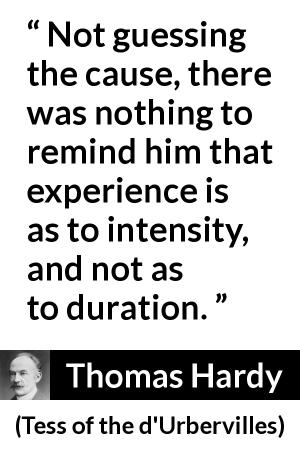“ Not guessing the cause, there was nothing to remind him that experience is as to intensity, and not as to duration. ”
Thomas Hardy, Tess of the d'Urbervilles (1891). copy citation
| Author | Thomas Hardy |
|---|---|
| Source | Tess of the d'Urbervilles |
| Topic | experience intensity duration |
| Date | 1891 |
| Language | English |
| Reference | |
| Note | |
| Weblink | http://www.gutenberg.org/files/110/110-h/110-h.htm |
Context
“The perception arrested him less when he reflected that what are called advanced ideas are really in great part but the latest fashion in definition—a more accurate expression, by words in logy and ism, of sensations which men and women have vaguely grasped for centuries.
Still, it was strange that they should have come to her while yet so young; more than strange; it was impressive, interesting, pathetic. Not guessing the cause, there was nothing to remind him that experience is as to intensity, and not as to duration. Tess's passing corporeal blight had been her mental harvest.
Tess, on her part, could not understand why a man of clerical family and good education, and above physical want, should look upon it as a mishap to be alive.” source
Still, it was strange that they should have come to her while yet so young; more than strange; it was impressive, interesting, pathetic. Not guessing the cause, there was nothing to remind him that experience is as to intensity, and not as to duration. Tess's passing corporeal blight had been her mental harvest.
Tess, on her part, could not understand why a man of clerical family and good education, and above physical want, should look upon it as a mishap to be alive.” source
